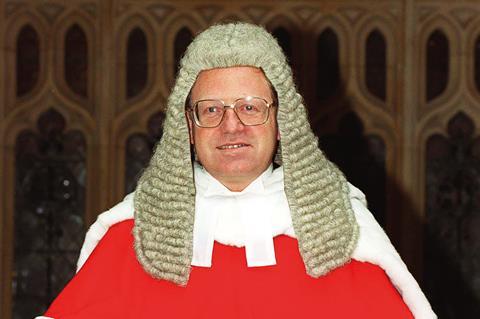The MoJ has been accused of dragging its feet over implementing the Ouseley recommendations on closed material procedure. And its belated response has done little to pacify alienated special advocates
It is doubly ironic that the government dropped its response to concerns about the UK’s controversial ‘secret justice’ system into a political vacuum. ‘Least said the better’ would seem to have been Whitehall’s default mode here. Remarkably (or perhaps not so remarkably), six years have elapsed since a statutory review was first scheduled to begin.
The Ministry of Justice published its verdict on the 2022 Ouseley report on closed material procedure (CMP) on 29 May, the day before parliament dissolved. This came after a group of 25 practising special advocates, including 16 KCs, told the attorney general in April that they would not accept any new appointments while current defects with the system remain unaddressed. Special advocates are the security-cleared lawyers appointed to represent the interests of those excluded from viewing material rated national security-sensitive.
Under the Justice and Security Act 2013, a review of the CMP was required to commence ‘as soon as practicable’ after June 2018. The review was not commissioned until February 2021, under former High Court judge Sir Duncan Ouseley. The judge laid his report before parliament in November 2022, making 20 recommendations. In its response, the MoJ says it is taking forward 16 – but critics allege some of these pledges are mere declarations of intent.
One key area of controversy is resourcing for special advocates, encompassing staffing levels and training. The MoJ will work with the Special Advocates’ Support Office (SASO) to ‘understand what would be required, in terms of resourcing, to deliver an increased training offer to SAs, to ensure that regular training is available to both new and existing SAs.
‘We will continue to engage with GLD [Government Legal Department] and SASO to ensure that the system has sufficient resilience.’

The MoJ has accepted Ouseley’s recommendation that a secure electronic database summarising points of law in closed judgments would be a useful tool for both HMG advocates and SAs. It pledged to create an accessible, searchable, closed judgment summaries database, and a secure electronic full closed judgments database, but added: ‘It is important to note, however, that this is not a straightforward task and will take some time to establish. There are a number of security considerations that will need to be taken into account when dealing with material of such a sensitive nature.’
Highly experienced special advocate Angus McCullough KC, of 1 Crown Office Row, has been highly critical of the government’s inertia in a series of blogposts and has become something of a spokesperson for SAs. McCullough has been instructed as the special advocate in some of the most high-profile cases of recent years, including Shamima Begum’s appeal against deprivation of British citizenship.
Explaining his decision not to accept new appointments, he wrote last October: ‘The structural unfairness of [the] system is one thing, but it is quite another for that unfairness to be heightened by a failure to provide proper resourcing and support for special advocates. That aggravated unfairness of CMPs is a price paid by the excluded parties, even though they may be unaware of it. The system depends on special advocates being able to discharge our role effectively.’
In a blogpost last Thursday, McCullough described the MoJ’s response as ‘profoundly disappointing’, noting that ‘after so long, some important recommendations in the Ouseley review have now been rejected’.
One such rejection relates to alternative dispute resolution. Ouseley recommended that SAs should be able to attend to make representations in private to the defendants about how they are putting matters at ADR procedures. But the government ‘does not believe it is necessary, nor appropriate within the broader national security context, for SAs to participate in ADR’.
McCullough added: ‘Also, the terms in which some of the key recommendations have been accepted are non-committal in relation to both timing and concrete steps to be taken, including in relation to matters which Sir Duncan described as requiring urgent attention.
‘Individual special advocates will come to their own decisions as to whether they are now prepared to accept new appointments. My own position has been, and remains, that returning to the role is dependent on implementation of Ouseley. These issues need to be addressed by concrete measures rather than open-ended declarations of intent. There can now be no progress until after the general election. The incoming government, whatever its stripe, must address this as a priority, both as to implementation and revisiting the recommendations that have currently been rejected.’































No comments yet